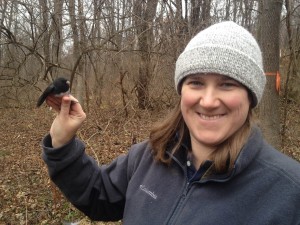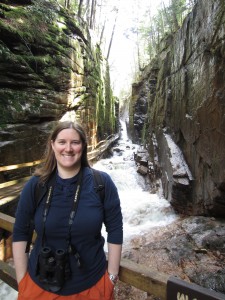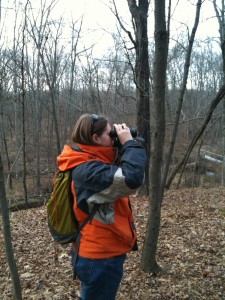 Megan D. Gall, Ph.D. Associate Professor—– —-..—–..–.-Department of Biology, Vassar College
Megan D. Gall, Ph.D. Associate Professor—– —-..—–..–.-Department of Biology, Vassar College
Ph.D., Purdue University M.S. California State University Long Beach B.A. Pomona College
Download my C.V. View my Google Scholar Profile
At Vassar I spend much of my time teaching. Some of that time is spent in the classroom, teaching classes that include the Singing Life of Birds (Bio 105), Animal Physiology (Bio 228), and Sensory Ecology (Bio 389). Much of this teaching also occurs in my research lab and out at the Vassar Ecological Preserve. My research lies in the fields of sensory ecology, physiology, and behavior, with a focus on acoustic communication in birds and frogs. I usually have 3-5 undergraduate students working in my lab on projects ranging from bioacoustics to comparative auditory processing to neuroethology. These students learn techniques from many different fields and are an extremely important part of my research program.
My research is both question driven and based on careful observation. I ask lots of questions in my work. Why have different species evolved similar or different auditory systems? What factors (like behavior, life history, habitat) drive the configuration of the auditory system? How has animal communication been impacted by the changes human have made to the world (anthropogenic change)? How do anthropogenic factors affect the production, transmission and reception of acoustic signals? To answer these questions my lab members and I use methods and techniques from fields ranging from ecology to physiology to molecular biology. Our work has been published in the Proceedings of the Royal Society B, the Journal of Experimental Biology and the Journal of Comparative Physiology A, among others.


